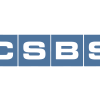CSBS Relays Concerns with SEC's Staff Accounting Bulletin 121
The Honorable Patrick McHenry
Chairman
House Financial Services Committee
Washington, DC 20515
The Honorable Maxine Waters
Ranking Member
House Financial Services Committee
Washington, DC 20515
Chairman McHenry and Ranking Member Waters,
On behalf of the Conference of State Bank Supervisors,1 I write to relay our concerns with the U.S. Securities and Exchange Commission’s (SEC) Staff Accounting Bulletin 121 (“SAB 121,” or “the Bulletin”). The Bulletin, issued without public consultation, unilaterally upends traditional custodial accounting obligations. As written, SAB 121 could lead to significant downstream effects for custodial firms subject to prudential regulation.
State regulators strongly support appropriate customer protections and a safe and sound financial system. Further, we appreciate the SEC’s effort to provide guidance concerning novel activities such as custodial services for “crypto-assets.” However, decisions with wide-ranging implications across the banking sector should be made in consultation with prudential regulators at both the state and federal level and only after an opportunity for public notice-and-comment. As the Government Accountability Office (GAO) ruled in October 2023, SAB 121 qualifies as a rule under the Administrative Procedure Act (APA) and, as such, should have been made available for public comment.2
While custodial activities may have once elicited images of only safe deposit boxes holding valuable physical objects, today’s banks hold a variety of both physical and electronic assets. More recently, bank customers have been increasingly interested in banks’ ability to custody crypto-assets, including cryptographic keys. While the nature of the underlying assets may change and prudential risk management requirements may vary from asset to asset, the accounting and regulatory principles applicable to such custodial assets should be consistent. In unilaterally departing from well-established accounting principles for safeguarding custodial crypto-assets, SAB 121 ignores existing regulatory frameworks in place to ensure custodial activity is conducted in a safe and sound manner.
Failure to take public comment or consult with other regulators on a cross-jurisdictional issue like this could result in substantial unintended consequences. Two areas of potential side effects from this opaque rulemaking include:
- Potential Asset Concentration. The Bulletin requires on-balance sheet accounting of crypto-assets under custody, which is a significant departure from the treatment of other assets held under custody. Due to the prudential regulatory implications of on-balance sheet accounting, this would likely require custodial institutions to raise significant funds to maintain adequate leverage ratios – a step many industry participants have indicated would be prohibitive to providing these custodial services for customers.3 Not only is this model inconsistent with the principle that similar activities should be regulated in a similar manner, but it could also result in an unnecessary and potentially risky concentration of custodial assets outside of prudentially regulated institutions.
- Loss of Insolvency Protections for Customers. Applying on-balance sheet treatment for crypto-assets may inappropriately subject customer assets to creditors’ claims in the event of the insolvency of an institution offering custody products and services. In a traditional bankruptcy proceeding, assets accounted for on-balance sheet are typically subject to creditor claims. Conversely, assets held in custody for the benefit of customers are considered accounted for off-balance sheet – and thus protected in bankruptcy – because they remain the assets of the customer. Requiring custodied crypto-assets to be accounted for on-balance sheet risks losing the bankruptcy remote protections of custody services. This is an important distinction from the treatment for a broker-dealer that would be subject to a different form of bankruptcy under the Securities Investor Protection Act.
These are only two unintended side effects that SAB 121 could impose on markets and consumers in an evolving technological environment.
History repeatedly demonstrates the shortcomings of rulemaking in a vacuum. Without significant consultation with peer regulators and comments from the broader public, these types of missteps are all too common, particularly with new and innovative technologies. We support robust consumer and market protections in this growing and evolving asset class and stand ready to provide Congress and our federal regulatory partners with our experience and expertise. However, given the lack of adequate consultation and opportunity for public comment, and the potential for significant detrimental effects, we have significant concerns with SAB 121.
Sincerely,
Brandon Milhorn
President and CEO
Endnotes
1 - The Conference of State Bank Supervisors (CSBS) is the national organization of bank regulators from all 50 states, American Samoa, District of Columbia, Guam, Puerto Rico and U.S. Virgin Islands. State regulators supervise 79% of all U.S. banks and a variety of non-depository financial services. CSBS, on behalf of state regulators, also operates the Nationwide Multistate Licensing System to license and register non-depository financial service providers in the mortgage, money services businesses, consumer finance and debt industries.
2 - GAO Decision, Securities and Exchange Commission—Applicability of the Congressional Review Act to Staff Accounting Bulletin No. 121, File B-334540 (Oct. 31, 2023).
3 - Letter. “Re: Staff Accounting Bulletin No. 121 Issued by the Staff of the Office of the Chief Accountant of the Securities and Exchange Commission” from the American Bankers Association, Bank Policy Institute, and Securities Industry and Financial Markets Association. June 23, 2022.
- Stablecoin
Digital Asset Market Structure Legislation
Jan 14, 2026
- Stablecoin
Genius Act Implementation
Nov 4, 2025
- Press Releases
Tokenized Deposit Guidance and Robust Stablecoin Rules Must Be Issued in Tandem
Nov 4, 2025
Get Updates
Subscribe to CSBS
Stay up to date with the CSBS newsletter


